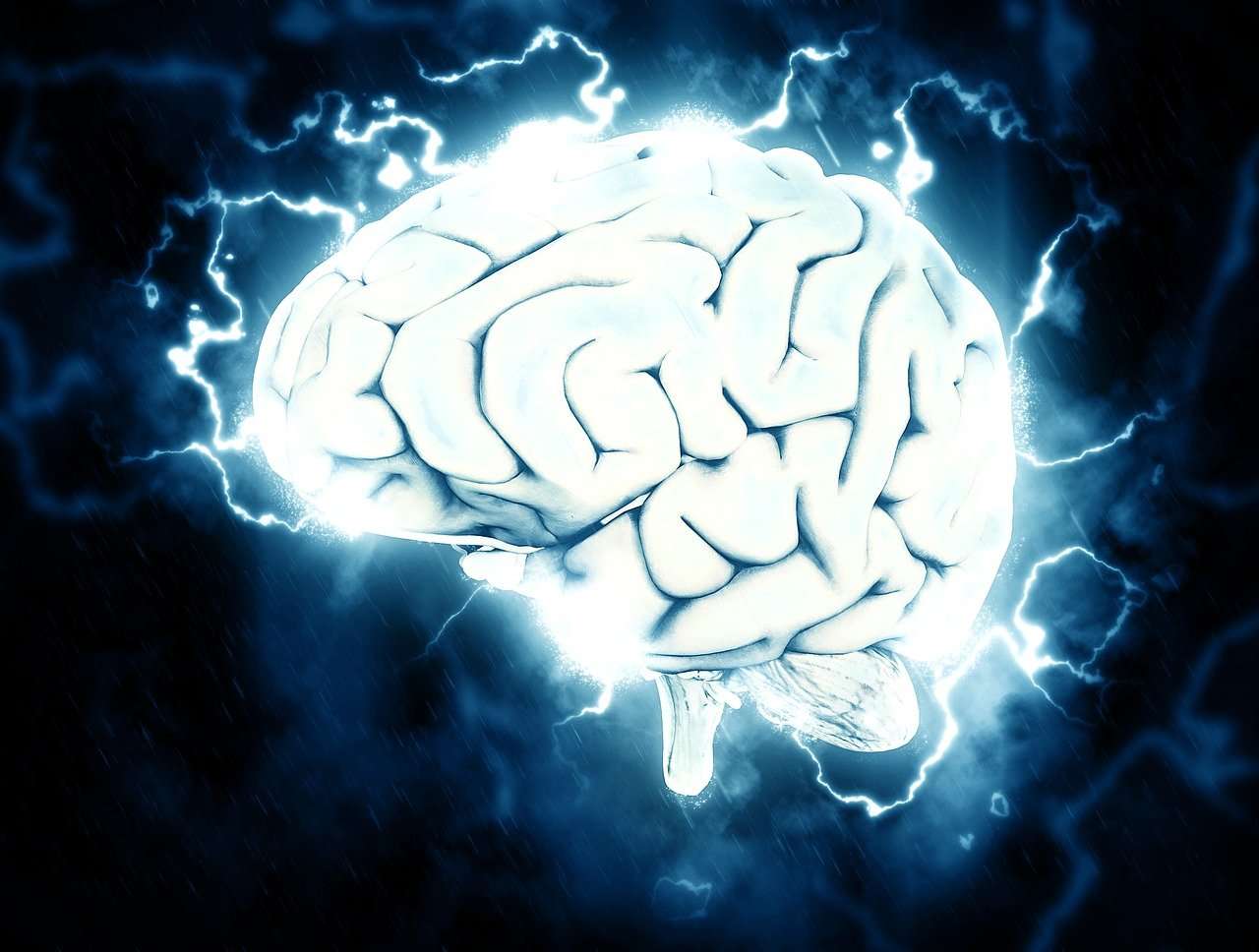Welcome to wikilifestyles.com
Introduction: Ditch 7 Habits for Better Brain Health
Topics covering : Brain health habits to avoid , Protecting brain health, Maintaining a healthy brain ,Bad habits for brain health

The organ in the head that manages every bodily process is the brain. It consists of an intricate web of nerves and cells that talk to one another in order to synchronize movement, sensation, thought, and emotion. The cerebrum, cerebellum, and brainstem are three of the many parts of the brain, each of which performs a different role. The cerebrospinal fluid cushions it, and the skull shields it. The human brain is the most intricate organ, and researchers are still trying to fully comprehend how it functions.
As the central controller and coordinator of all bodily systems, the brain significantly impacts the body. When the body needs to respond, it gets information from the senses, analyses it, and then gives the body the appropriate commands. Vital processes including breathing, heart rate, and digestion are managed by the brain. Additionally, it manages coordination, balance, and movement. Additionally, the brain controls our thoughts, emotions, and conduct. It serves as the focal point of our consciousness and enables us to interact with people, make decisions, and observe our surroundings. The brain, the most complex organ in the human body, allows us to reason, pick up new information, and retain it.
It is said that we should refrain from certain bad habits in order to maintain proper brain function because these habits can have a negative impact on the brain and its ability to function properly
Below are the the 7 Bad Habits that you should be Avoided in order to Protect the Health of our Brains :
1 Food consumption that is high in sweetness and sugar :

A diet that is high in sweetness and sugar can be harmful to the health of the brain for a number of reasons.
First off, eating a lot of sugar can raise insulin levels, which can harm cognitive health and brain function, especially in the hippocampus, the portion of the brain responsible for memory and learning.
Second, eating a lot of sugar can cause inflammation in the brain, which can harm neurons and interfere with their ability to communicate, resulting in cognitive loss and memory issues.
Thirdly, ingesting a lot of sugar can result in long-term health problems including type 2 diabetes and obesity, which have been associated with a higher risk of dementia and cognitive decline.
Finally,A high-sugar diet may also affect the brain’s reward system and result in behaviours that are similar to addiction.
It’s crucial to remember that sugar consumption should be moderate; excessive sugar consumption can be harmful to brain function.
2 Cola consumption, which has a negative impact on our brain in due course :

It is believed that drinking cola might have a harmful effect on the brain,Because of the significant amounts of caffeine and sugar it contains, .While excessive sugar consumption is associated to a number of health issues like obesity, diabetes, and heart disease, caffeine can have detrimental effects on the nervous system such as anxiety, insomnia, and other issues. In addition, eating a lot of sugar can result in less of a substance called brain-derived neurotrophic factor (BDNF) https://en.wikipedia.org/wiki/Brain-derived_neurotrophic_factor , which is beneficial for memory, learning, and general brain health.
3 Intake of trans-fat-containing foods, particularly cream-filled cakes and other pastries :

Trans fats, which are typically included in processed foods like cream-filled cakes and other pastries, have been associated with a range of harmful health outcomes, including an elevated risk of heart disease. Less research has been done on their effects, specifically on the brain.
you can go through our article https://wikilifestyles.com/experts-share-their-tried-and-tested-thoughts-on-healthy-food-ideas-healthy-eating-plan/#more-129 to know what experts has said about healthy eating
Trans fat consumption may be detrimental to brain function, according to recent studies https://pubmed.ncbi.nlm.nih.gov/27215959/#:~:text=T%2Dfats%20have%20an%20adverse,This%20can%20diminish%20mental%20performance. . Trans fats may lead to bodily inflammation, which may deteriorate the blood vessels supplying the brain. This may raise your risk of stroke and other conditions affecting your brain.
Trans fats can interfere with the brain’s ability to function normally by affecting blood cholesterol levels. A decrease in the formation of myelin, a protective covering that surrounds the nerve fibres in the brain, can result from low levels of HDL (good) cholesterol. As a result, there may be a loss in cognitive ability and an elevated risk of dementia.
In conclusion, eating foods high in trans fats, especially cream-filled cakes and other pastries, may have deleterious effects on our brains in addition to the well-known detrimental effects on our heart health. It is advised that they consume less and choose healthier alternatives.
4 Avoiding unneeded tensions and stress is good for the wellness of your brain :

The body releases stress hormones like cortisol and adrenaline in response to stress and tension, which can have detrimental consequences on the body and brain. These chemicals have been shown to increase inflammation in the brain, which can result in issues like anxiety, sadness, and memory loss. Chronic stress can also interfere with the neurotransmitter balance in the brain, which can worsen mental health problems. You may aid in preventing these damaging impacts on your brain and advance general brain wellbeing by avoiding unneeded stress and strain.Do Follow our Blog Link to Know more about Stress https://wikilifestyles.com/everything-about-stress-causes-of-stress-and-5-techniques-to-manage-stress-positively/
5 Being up at night will seriously harm our brain health by destroying our brain cells :

Being awake late at night might interfere with the body’s natural circadian rhythm, which controls the sleep-wake cycle. Lack of sleep, which is known to have harmful impacts on the brain and general health, might result from this interruption.
Lack of sleep can result in the body’s release of stress hormones, which can damage brain cells and create inflammation in the brain. It can also upset the neurotransmitter balance in the brain, which can make mental health problems worse. A reduction in total brain function, memory loss, and cognitive impairment have also been connected to sleep deprivation.
For most individuals, getting the required 7-9 hours of sleep each night will assist safeguard your general health, including the health of your brain.
6 Being around negative people and hearing bad news a lot will harm our mental health :

Being surrounded by pessimists and frequently hearing bad news can be detrimental to one’s Brain health because it might result in a generalised pessimistic approach and perspective on life. Negative people frequently concentrate on the bad things in life and can make others feel bad as well. Similar to this, receiving terrible news can cause feelings of powerlessness, worry, and hopelessness.
Constant exposure to negativity can also result in the body’s release of stress hormones, which can damage brain cells and promote inflammation in the brain. It may also upset the neurotransmitter balance in the brain, which may aggravate mental health problems including sadness and anxiety.
One can foster a more positive attitude on life and safeguard their Brain health by surrounding themselves with positive people and avoiding negative news sources.
7 Any toxic relationship, whether it be with your partner or someone else, will have a negative impact on your brain :

Because toxic relationships can result in prolonged stress, which can have detrimental consequences on the brain and general health, they can have a negative influence on the brain. Being in a toxic relationship can cause the body to emit stress chemicals like cortisol and adrenaline, which can damage brain cells and create inflammation in the brain. It can also upset the neurotransmitter balance in the brain, which can exacerbate mental health problems like sadness and anxiety,
Being in a toxic relationship can also induce anxiety, powerlessness, and desperation feelings, all of which can be detrimental to mental health. Additionally, it may result in a pessimistic attitude on life, which may impair general brain function,
To safeguard one’s mental health and general wellbeing, it is crucial to recognise and get out of toxic situations. Please do follow the link https://www.healthline.com/health/toxic-relationship#What-is-a-toxic-relationship
to know in Detail about different Toxic Relation and Negative impacts of Toxic Relations
Please Share this Valuable Information to your Near and Dears
FAQ :Ditch 7 Habits for Better Brain Health
1. What are the bad habits that can harm our brain health?
- Bad habits affecting brain health include excessive alcohol consumption, lack of sleep, and a diet high in processed foods.
2. Why is it crucial to protect the health of our brains?
- A healthy brain is essential for overall well-being and cognitive function. Protecting brain health helps maintain mental acuity and emotional balance.
3. How can I maintain a healthy brain throughout my life?
- To maintain a healthy brain, prioritize a balanced diet, regular exercise, mental stimulation, and quality sleep, while avoiding detrimental habits.
4. What role do stress and lack of sleep play in brain health?
- Stress and inadequate sleep can lead to cognitive decline and negatively impact brain health. Managing stress and ensuring sufficient sleep are vital for brain health.
5. Can poor dietary choices affect brain health, and if so, how?
- Yes, an unhealthy diet high in processed foods and added sugars can lead to inflammation and cognitive decline, affecting brain health.
6. How does exercise contribute to brain health?
- Regular exercise increases blood flow, reduces inflammation, and supports the growth of new brain cells, all of which are beneficial for brain health.
7. Are there specific foods that can enhance brain health?
- Foods rich in antioxidants, Omega-3 fatty acids, and nutrients like blueberries, salmon, and leafy greens can support and enhance brain health.
8. What are the warning signs of poor brain health?
- Warning signs may include memory problems, difficulty concentrating, mood swings, and decreased cognitive function. Addressing these early is essential.
9. How does maintaining a healthy social life affect brain health?
- Social connections and meaningful relationships can stimulate the brain, boost mental health, and reduce the risk of cognitive decline.
10. Are there any natural remedies or supplements for brain health?
- Certain supplements like Omega-3 fatty acids and herbal remedies like ginkgo biloba may support brain health, but consult a healthcare professional before use.

1 thought on “Ditch 7 Habits for Better Brain Health”